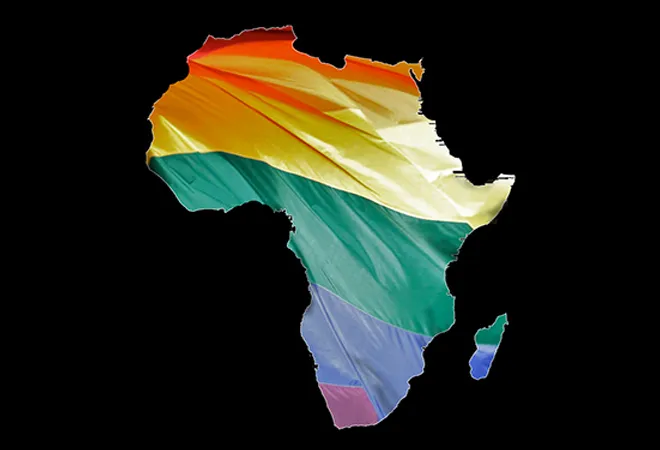
The COVID-19 pandemic is changing the nature of international cooperation and bringing out the inherent fault lines and weaknesses embedded in global institutions to sharp focus. The western, or so called ‘Atlantic system’, comprising of the USA and developed European countries ostensibly considered champions of multilateralism has failed to cope with the pandemic or provide any meaningful leadership during this unprecedented crisis. Across the system, multilateralism is severely eroding as nations become more inward-focused, directing their attention and strategies towards improving domestic manufacturing capacities and reducing dependence on foreign imports. Protectionist tendencies are on the rise in addition to the pressures of constrained mobility and fear of reduction in financial resources essential for tackling climate change and achieving SDGs. It seems that a tussle between unilateralism and multilateralism is going to shape much of the discourse on international cooperation.
Africa and multilateralism
Such developments amid a retreat of globalism gravely increase the vulnerabilities and risks for the developing, low-income countries in the Global South, the largest concentration of which is in the African continent. The pandemic could not have come at a worse time when Africa, as a single entity and voice, initiated discussions towards establishing a continental free trade area, which was due to start in July this year. Shedding their political differences and policy ambiguities, African states decided to pursue collective approach in the economic decision making at the continental level. Although regional and continental integration have for long been a crucial component of Africa’s developmental strategies, inter-continental trade only makes up for a meager 13 percent of total trade in Africa. Therefore, the decision to establish a single market that would enable more intra-African trade in goods and services is perceived even more necessary at a time when Africa needs to break out of the cycle of chronic external economic dependency. If anything, this pandemic has reinforced the need for immediate and collective action in order to deal with global and transnational challenges in this interconnected and inter-dependent world.
The pandemic could not have come at a worse time when Africa, as a single entity and voice, initiated discussions towards establishing a continental free trade area, which was due to start in July this year.
It would be wrong to perceive Africa more as a beneficiary of global multilateralism than as an active participant. Africans have a long-standing commitment to multilateral approaches and understanding of the integral role multilateralism plays in fostering development, prosperity and peace. But unfortunately, efforts in this direction by the African countries often go unnoticed. Not only has African states’ supported global efforts such as the UN, the Non Aligned Movement (NAM), and the G77, they also established the Organization of African Unity (OAU) way back in 1963. The OAU’s successor, the African Union, at the continental level comprises of eight regional bodies covering the length and breadth of the continent. In addition, Africa has established multilateral organisations that facilitate dispute resolution and fosters cooperation such as the Pan-African Parliament, the African Development Bank, the Economic, Social and Cultural Council, the African Court on Human and People’s Right, the African Commission on Human and Peoples’ Rights, and also the very unique African Peer Review Mechanism, which supports efforts towards good governance.
With about a quarter of the world’s countries and over 1.2 billion population, clearly any discussions about a new world order or new governance rules cannot sideline Africa. Africa needs to be at the table and part of the decision-making processes. African countries cannot be perpetual rule-takers. Rather, they should be part of the system and arrangements for eliciting and conferring on practical and viable suggestions on reforming the global governance system. Elizabeth Sidiropoulos of South African Institute of International Affairs (SAIIA) echoes this sentiment when she says that “the process of sustaining and reforming multilateralism must also include a strong African voice.” Therefore, any new solutions or new institutions that emerge to deal with the complex governance challenges in the 21st century needs to be multi-actor, and must reflect inclusivity by including African voices.
With about a quarter of the world’s countries and over 1.2 billion population, clearly any discussions about a new world order or new governance rules cannot sideline Africa.
However, it would benefit and support the efforts of African countries when they explore partnerships with other countries or coalition of states that share similar values and commitment to enhance voice of emerging and developing economies, in the decision-making bodies of multilateral institutions. This is where India comes into the picture. India — the world’s largest democracy representing one-sixth of humanity, and Africa, with over a quarter of UN members, cannot be kept outside the decision-making table on multilateralism. India-Africa cooperation to advance multilateralism in the world is an imperative both from the standpoint of the interests of the two partners as well as in the interest of the new cooperative architecture the post-pandemic world would need.
India, Africa and global governance
Essentially, India and Africa’s partnership strives to achieve greater autonomy and ensure that the agenda of the global South is prioritised. Although the institutions of global governance that were created after the Second World War, like the UN, WTO, IMF, have served well, they have failed to adapt to the rapidly changing global scenario and adequately represent the voice of the developing world. Therefore, democratic reforms in global institutions are quintessential; that is why India and Africa have voiced their support for expanding both permanent and non-permanent membership of the UN Security Council. Even in the Ten Guiding Principles for India Africa Engagement, as enunciated by Prime Minister Narendra Modi in July 2018, one of the guiding principles states that: “Just as India and Africa fought colonialism together, we will work together for a just, representative, and democratic global order that has a voice for one-third humanity that lives in Africa and India.”
Although the institutions of global governance that were created after the Second World War, like the UN, WTO, IMF, have served well — they have failed to adapt to the rapidly changing global scenario and adequately represent the voice of the developing world.
India wants to partner with African countries and together embark on a developmental path that is essentially people-centric. This is why India’s partnership with Africa rests on the principle of equality, mutual benefit, mutual respect, and solidarity. The model of cooperation with Africa is demand-driven, consultative, participative, and strives to build local capacities. The idea is to liberate Africa’s potential without seeking to constrain it. All benefits accrued from such a partnership must be distributed evenly cutting across different geographies. No one should be left out. But the principle challenge for India and Africa will be to ensure that the developed countries do not withdraw from their North-South commitments, and that they must continue to assist developing countries by providing financial resources that are required for mitigation and adaptation.
India’s quest for ‘reformed multilateralism’ essentially calls for constructive reforms. In this endeavour, African nations will have a critical role to play purely because of the sheer numerical strength in the UN. This stance has been continuously reiterated in various multilateral platforms such as NAM, BRICS, and IBSA because for far too long, alignments, alliances, and assumptions have been rooted in the legacies of colonialism and ideologies of the Cold War.
It is significant to note that India’s Prime Minister in his recent nationally televised speech has strongly pitched in favour of self-reliance (atmanirbhar) as the country’s response to meet the challenge of the COVID-19 pandemic. This however does not necessarily imply that the country would hide behind a protectionist wall. What possibly is implied is as a country, India should not be totally dependent on international aid and support, at least so far as basic public health and other critical infrastructure needs are concerned. An ‘atmanirbhar’ India, in fact, would be in much better position to support its international roles and responsibilities. In the context of African countries also, we can see this sentiment echoed in the Agenda 2063 wherein it was stated that the quest for African unity, inspired by the spirit of pan-Africanism, is motivated by “development based on self-reliance and self-determination of African people, with democratic and people-centered governance.”
The views expressed above belong to the author(s). ORF research and analyses now available on Telegram! Click here to access our curated content — blogs, longforms and interviews.




 PREV
PREV


